
Follow up data from KEYNOTE-799 demonstrated a high overall response rate with no new safety signals for patients with unresectable, locally advanced, stage III non-small cell lung cancer.

Your AI-Trained Oncology Knowledge Connection!


Follow up data from KEYNOTE-799 demonstrated a high overall response rate with no new safety signals for patients with unresectable, locally advanced, stage III non-small cell lung cancer.

The increasing use of checkpoint inhibitors and other immunotherapies has created a need for the development of a cohesive education program and list of guidelines for treating common toxicities.

The phase 1b/2 PLANET study demonstrated promising results for patients with these rare gastrointestinal cancers.

The Emory University Winship Cancer Institute expert discussed FDA approvals and other treatment advances that occurred this year.

The expert from Cedars-Sinai Cancer spoke about the continued integration of immunotherapy-based combination regimens, and the importance of utilizing the multidisciplinary care team to mitigate any possible toxicities that may arise.

Research presented at the 2020 San Antonio Breast Cancer Symposium highlighted the need for reliable information to address the educational and psychosocial needs of patients with newly diagnosed metastatic breast cancer.
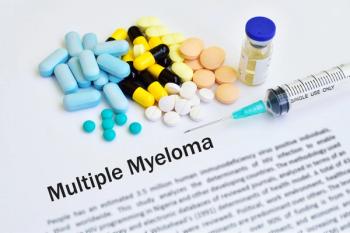
The phase 3 BOSTON study demonstrated superior PFS and ORR with selinexor (Xpovio), bortezomib (Velcade), and dexamethasone in patients with relapsed/refractory multiple myeloma.

A clear and reliable biomarker to select patients with prostate cancer for active surveillance or focal therapy has not yet been determined but inferring a course of action from existing biomarkers may be possible.

Research shows that the PARP inhibitor demonstrated superior PFS and OS for patients with metastatic castration-resistant prostate cancer with BRCA1, BRCA2, or ATM alterations.

Researchers utilized the Seamless MD app to aid in ERAS protocols for patients undergoing radical cystectomy, while mitigating risks from in-person visits during the COVID-19 pandemic.

A pooled analysis compared survival among patients with metastatic renal cell carcinoma treated with cytoreductive nephrectomy and either targeted therapy or immunotherapy regimens utilizing checkpoint inhibitors.

Researchers sought to better understand the impact of treatment on intimate relationships for patients with bladder cancer.
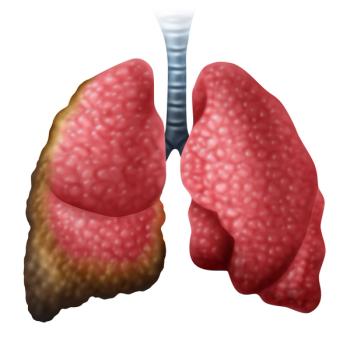
The combination of nivolumab plus ipilimumab becomes the first new therapy approved for patients with mesothelioma in 15 years.

The FDA granted approval for Pralsetinib as well as a companion diagnostic to test for RET fusions.

Patients with locally advanced or metastatic urothelial carcinoma receiving enfortumab vedotin had increased overall survival at 12- and 18-month intervals.
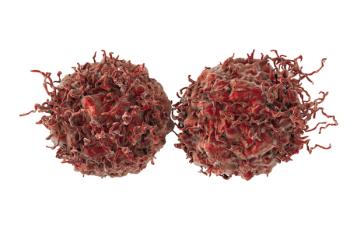
Two recent studies indicate oncological outcomes were not affected by delayed radical prostatectomy, supporting current recommendations for management of intermediate- and high-risk patients with prostate cancer during the COVID-19 pandemic.

Study presented at the AACR Virtual Annual Meeting II supports an increased role for genetic testing in these patients.

The FDA approved 2 new therapies, each with its own companion diagnostic, for the treatment of patients with metastatic non–small cell lung cancer.

Final data analysis of SPARTAN trial demonstrates large benefit in overall survival when compared with ADT plus placebo.
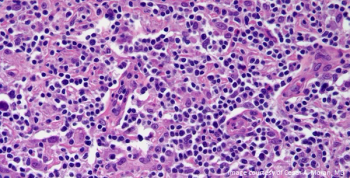
Results of KEYNOTE-204 supports pembrolizumab as new standard of care for patients with classical Hodgkin Lymphoma who have relapsed after autologous stem cell transplant or are ineligible for autologous stem cell transplant.
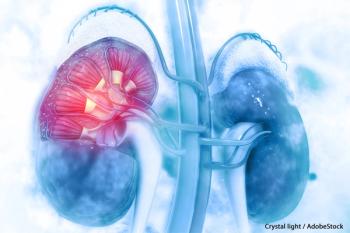
When compared with sorafenib, tivozanib showed improved progression-free survival, and a more manageable safety profile for patients with relapsed or refractory metastatic renal cell carcinoma.

The phase II study was the first trial to explore the use of immunotherapy for patients who were resistant to standard chemotherapy treatment

Multiple abstracts released via the virtual platform for the Society of Gynecologic Oncology (SGO) 2020 Annual Meeting on Women’s Cancer show mounting evidence for PARP inhibitors as the standard of care in the frontline setting for patients with ovarian cancer.
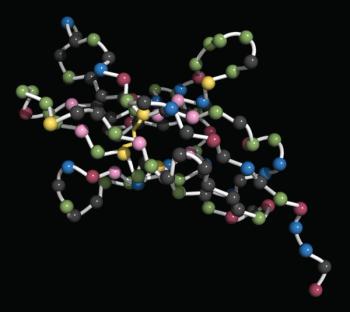
The FDA granted accelerated approval nivolumab plus ipilimumab for the treatment of advanced hepatocellular carcinoma in patients who were previously treated with sorafenib.

PARP inhibitors take center stage at the Society of Gynecologic Oncology’s 25th Annual Winter Meeting

Although accumulating data continue to show immunotherapy as a major step forward in the treatment of patients with non–small cell lung cancer (NSCLC), questions regarding optimal sequencing and treatment duration still remain. At the 17th Annual Winter Lung Cancer Conference®, hosted by Physicians’ Education Resource®, LLC, multiple presentations looked for answers to address these issues.

The FDA approved pembrolizumab (Keytruda) for the treatment of patients with Bacillus Calmette-Guerin (BCG)-unresponsive, high-risk, non-muscle invasive bladder cancer (NMIBC) with carcinoma in situ (CIS) with or without papillary tumors who are ineligible for or chose to not undergo cystectomy.

Multiple studies showed improved patient outcomes and increased quality of life (QOL) among various treatments that previously demonstrated clinical benefits. These patient-centric findings, along with a promising new combination therapy for patients with advanced hepatocellular carcinoma (HCC) highlight some of the latest research to come out of the 2020 Gastrointestinal Cancers Symposium, held January 23-25, in San Francisco, California.

Research shows that digital videos led to increased knowledge and interventions, but access for vulnerable populations must be improved.

Although researchers determined which regimen was preferred among physicians in treating metastatic colorectal cancer, they found that shared decision-making should include observation as an acceptable option.

Published: December 3rd 2020 | Updated:

Published: December 10th 2020 | Updated:

Published: June 16th 2020 | Updated:

Published: December 3rd 2020 | Updated:

Published: December 4th 2020 | Updated:

Published: October 13th 2020 | Updated: